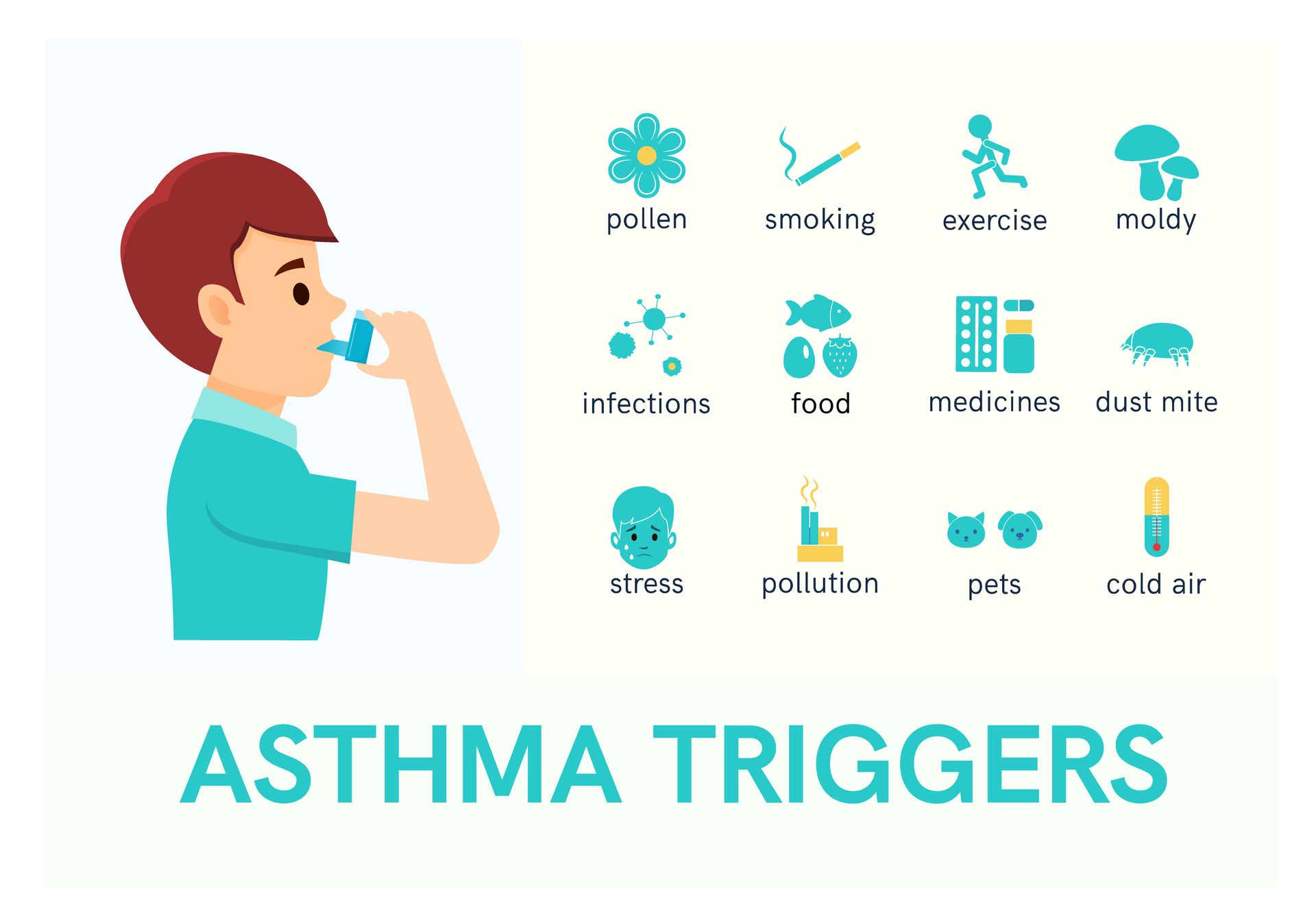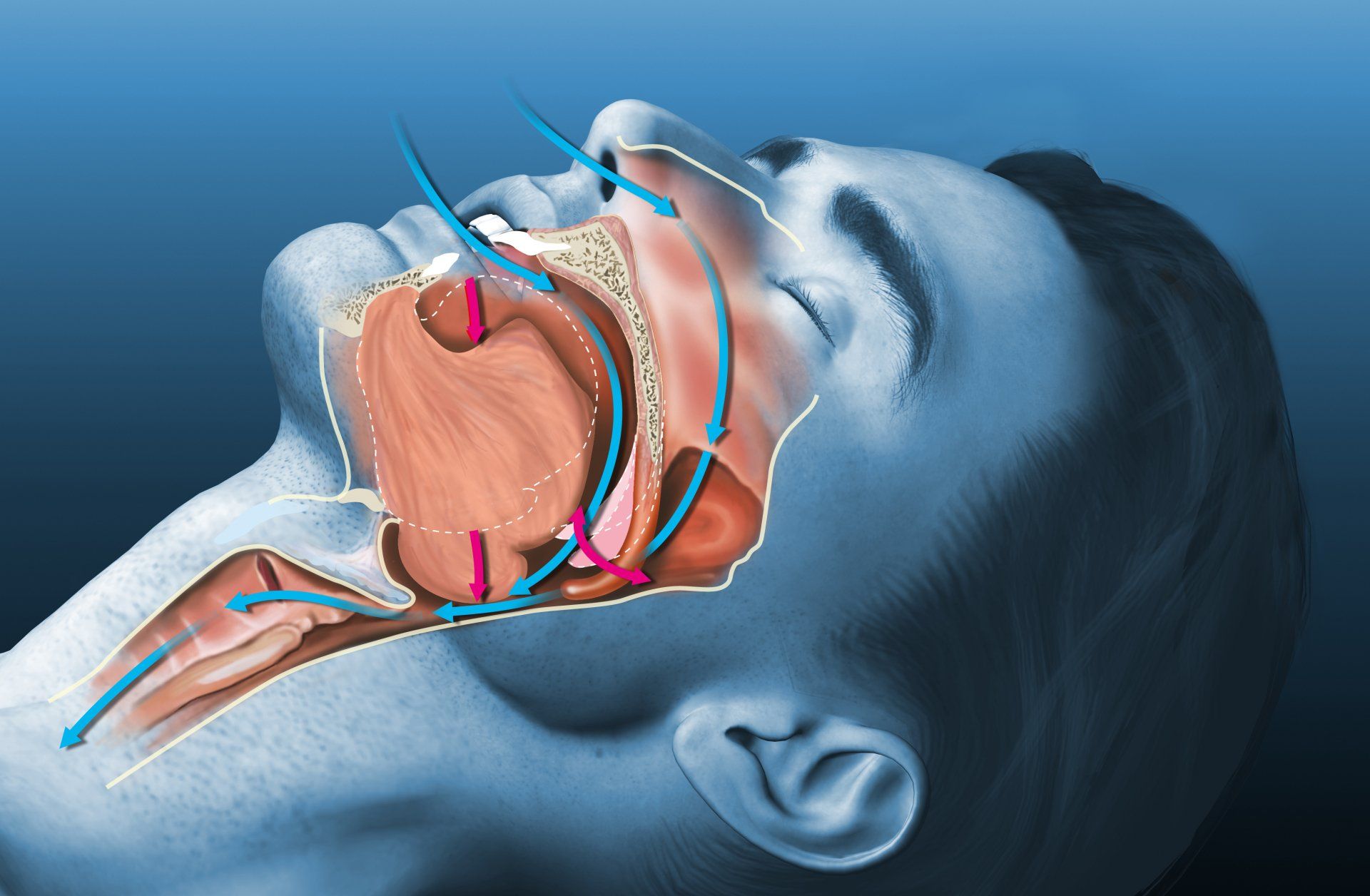Medications/Foods To Take With Caution If You Have Asthma
Asthma is a condition wherein your airways narrow and swell, causing excess mucus to be produced. As a result, breathing could become challenging, and you might experience the following when you exhale:
- Shortness of breath
- Coughing
- Wheezing
Asthma might be a minor inconvenience for some people. However, others may find it to be a significant issue that interferes with everyday tasks and could trigger a potentially fatal asthma attack.
Although asthma cannot be cured, its symptoms can be managed. Since the indications and symptoms of asthma can change over time, you must communicate with your doctor to monitor your signs and symptoms. This will also allow your doctor to modify your therapy as necessary.
Symptoms of Asthma Attack

Symptoms of asthma differ from person to person. An individual with asthma may occasionally experience attacks, only experience symptoms periodically, such as when exercising, or experience symptoms all the time.
Signs and symptoms of asthma include:
- Shortness of breath
- Chest tightness or pain
- Wheezing when exhaling (a common symptom of asthma in children)
- Sleep issues due to coughing, wheezing, or shortness of breath
- Coughing or wheezing fits aggravated by a respiratory virus (such as a cold or the flu)
The following are symptoms that your asthma may be becoming worse:
- More persistent and irritating asthma signs and symptoms
- Increasing difficulty breathing, as assessed by a gadget that measures how effectively your lungs work (peak flow meter)
- Using a quick-relief inhaler more frequently
What To Do During An Asthma Attack
Attacks from asthma can be terrifying and dangerous. Even when a person is taking their medicine and avoiding the triggers, episodes can still occur when symptoms get worse over a period of days or hours, or they can occur suddenly. Start taking immediate action if someone is experiencing an asthma attack or you suspect they are.
In case of a suspected asthma attack, apply the Five-Step Rule:
- Remain calm. Do not lie down; instead, sit up straight.
- Inhale deeply and slowly.
- Take one puff from your reliever inhaler every minute, which is typically blue.
- Use a spacer if it is available.
- People above six can take up to ten puffs in ten minutes.
- Children under six are permitted up to six puffs every ten minutes.
- Should your symptoms continue to worsen after 10 minutes, dial 995.
- If, after ten minutes, an ambulance has not arrived, repeat step 3.
If someone is experiencing an asthma attack, keep these things in mind:
- Do not leave them unattended.
- Additional puffs from a reliever inhaler (typically blue) are safe.
Medications To Avoid If You Have Asthma

Asthma can be aggravated by a variety of causes, including:
- Allergies
- Infections
- Environmental factors
- Medications
Knowing which drugs can set off an asthma attack is crucial if you have the condition. Consult your doctor if you suspect a medicine you were given has contributed to the worsening of your asthma.
Here are four medications to avoid if you have asthma:
Aspirin and a group of painkillers
For some individuals with asthma, aspirin and other non-steroidal anti-inflammatory medicines (NSAIDs), which include some popular over-the-counter pain treatments, may aggravate symptoms. Those medications include:
- Ibuprofen
- Naproxen
Sulfites
Sulfites are food additives found in some foods. From minor wheezes to possibly fatal asthmatic attacks, sulfites have been shown to trigger asthma symptoms. One in every 100 individuals has an uncommon allergy to these chemicals. Foods containing sulfites include:
- Baked goods
- Canned vegetables
- Soup mixes
- Jams
Beta-blockers
Beta-blockers are frequently used to treat conditions such as:
- High blood pressure
- Heart disease
- Migraine headaches
They may also be used as eye drops to treat glaucoma. However, some of them can aggravate asthma symptoms. Do check with your doctor/specialist if your asthma worsens when you are on these medications.
ACE inhibitors
Angiotensin-converting enzyme (ACE) inhibitors that can be used to treat heart disease or hypertension include:
- Lisinopril
- Enalapril
ACE inhibitors do not induce asthma, but some patients who take these medications can develop prolonged dry coughs. Some people may mistake this cough for asthma. Once again, seek advice from your physician if you have prolonged respiratory symptoms whilst on these medications.
Keep In Mind The Triggers Of Your Asthma To Prevent Fatal Attacks
You might find potential asthma triggers by keeping track of your location and what you are doing when your symptoms worsen. Some triggers can be difficult to avoid, but some may be avoidable, such as:
- Dust mites
- Pet fur
- Certain medications
If you believe you have discovered a trigger for your symptoms,
consult a doctor or an asthma specialist for guidance.
Looking for an asthma treatment in Singapore? Get specialist care at Respiratory Medical Associates
Respiratory Medical Associates is an established specialist group that is recognised as one of Singapore’s leading experts in the diagnosis and treatment of lung, sleep, and allergy disorders. These can range from persistent coughs, spots on the chest X-ray to lung infections such as bronchitis, pneumonia, and tuberculosis.
In addition, we also treat chronic disorders such as asthma, chronic obstructive pulmonary disease (a lung disease caused by smoking), lung fibrosis, obstructive sleep apnoea, as well as food and drug allergy. Enquire now at https://www.respmed-associates.sg/















